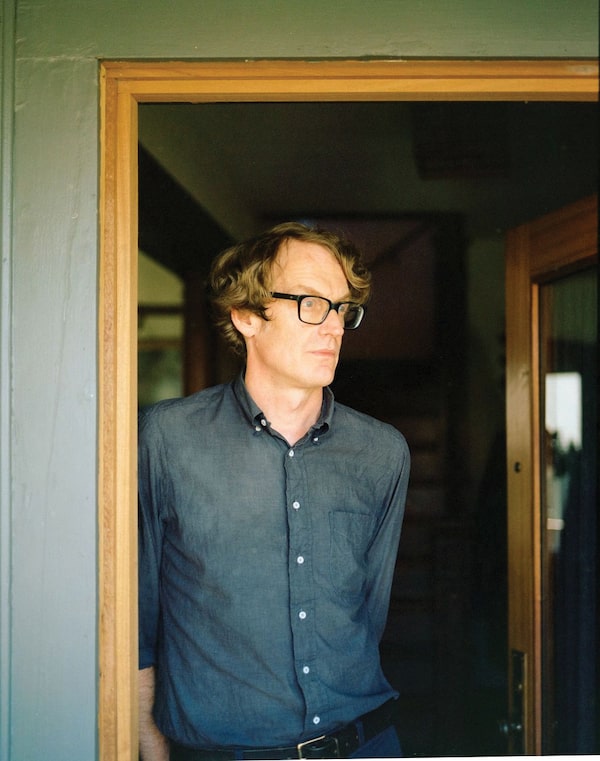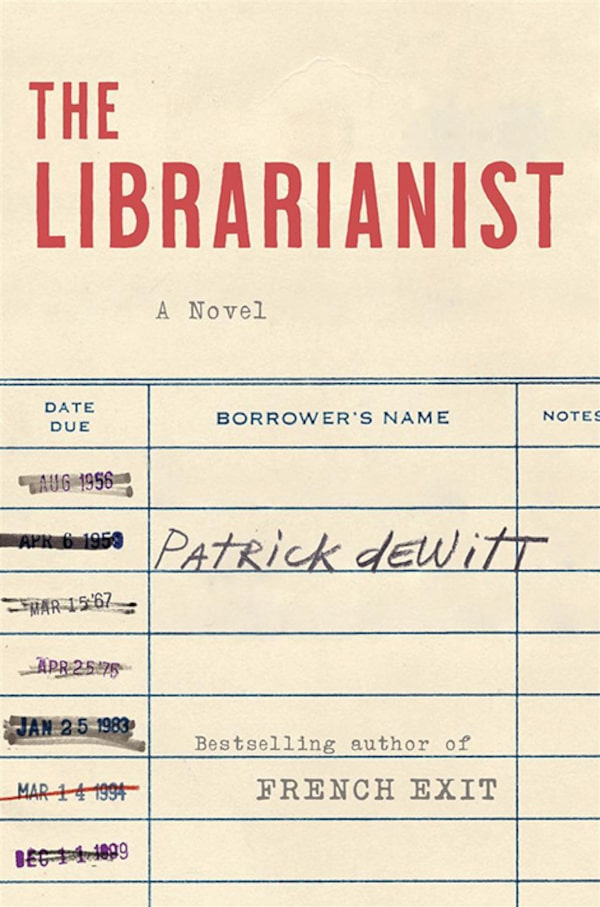Patrick deWitt is basking in the glow of a very specific feeling: The post-reading, post-public-appearance high. “The pharmaceutical industry should make a pill that makes you feel this way,” says Vancouver Island-born, Portland, Ore.-based deWitt. “They should bottle it and sell it, and I would buy them in bulk.”

Patrick deWitt.Kristen Ellis/Handout
The event that occasioned this heady release of dopamine is one that might surprise you: It’s a reading in the city where he lives, the thing he’s been “dreading” the most out of all the things he’s done to promote his latest novel, the No. 1 bestselling The Librarianist.
“All my friends and family are there looking at me,” he explains. “If I make a fool of myself in, you know, Eastern Europe that’s bad enough. But if I make a fool of myself in my hometown in front of the people who love me, then I’m causing them suffering while suffering myself at the same time.”
If you’ve read The Librarianist – or any of his four other novels – you’ll be familiar with deWitt’s curiosity about the human condition coupled with a sense for the comedic that is clear-eyed but never cruel. Not only are his books critic-favourites, two of them – French Exit and The Sisters Brothers – have been made into major films. He spoke to The Globe about success.
Thirty-three books to read this summer

The Librarianist, by Patrick deWitt.Handout
Was being a “bestselling author” an ambition for you?
The impulse of writing books is its own thing, and any hope for the book in terms of its commercial success comes after. I genuinely don’t understand what makes a bestseller a bestseller. I don’t seem to know what the majority of readers are after. I’m always surprised by what they like or don’t like about my work. It’s happened where books that have done very well, I had anticipated they would do poorly, and the opposite is true as well. I don’t think there’s much point in an artist aiming for any sort of status, because I don’t think it’s something that can be anticipated. The idea of connecting with strangers makes me happy, and you want the work to connect with people.
What are some of the places where you have been surprised by reactions?
The Sisters Brothers. I really felt like I was making a mistake. It’s not that I didn’t believe in the book, but I had this sense it wouldn’t translate. I remember thinking that the western fans would sniff out that it wasn’t a true western, and that the literary readers wouldn’t read it because it would be too western. That wound up not being true. It was, for whatever reason, accessible to most readers. My third book, Under Major Domo Minor, I thought people would enjoy it more than they did. The reaction of the public is mysterious, but I’m not describing a bitter disappointment. I don’t want to paint a picture of strife where there isn’t. I sincerely don’t know what people want, and it’s an ongoing curiosity to me as each book comes out.
2023 in books: 30 highly anticipated Canadian titles coming this year
When it comes to The Librarianist, have you been surprised by how people are responding to it?
I’ve been surprised both ways. Some of the responses have been disappointing, or I felt, ungenerous. Some have been lovely beyond what I’d anticipated. It’s hard to get people to discuss literature in this day and age, but people are discussing it, and it’s early in its life, but it seems like people are going out and picking it up. That’s really wonderful – and it’s not a given, even if you’ve got a healthy career and readership. Sometimes books are just D.O.A., and you don’t know what’s going to happen. So far, I’m really pleased because people, for the most part, have been really open to the idea of the book. It represents somewhat of a departure thematically for me, and tonally it’s a bit different from the earlier books. I think readers are more a) generous and b) daring than we give them credit for.
Many people just have such a warm reaction to the words “librarian” or “library.” It’s such a positive, instant association. Could there be something like that at play, where you’re getting people to pick something up by riding the tailwind of that love for libraries?
Certainly. I think the title itself is a little bit confusing. It was a book that was titled with a looming deadline in mind. I always have an issue with titles. Every one of my books I’m down to the wire, and I just throw something out. Titles are my Achilles’ heel. The invoking of public libraries and librarians, as you say … I do think it’s a pretty positive starting point. If someone’s in a bookstore looking to buy a new book in hardcover, chances are they’ve had some sort of experience with public libraries, and there most likely is some positive connection. When I think of libraries, it’s very uncomplicated. I think of my youth and young adulthood, and what libraries meant to me and how they’ve changed my life.
Is that your handwriting on the cover?
It’s not, but I’m laughing because it’s becoming a very common question, with friends and family even. It looks quite a lot like my handwriting.
I ask because the pattern of upper and lower case letters is quite idiosyncratic in its inconsistency. If that were how you wrote, I thought it could be quite telling.
If I’m printing, I tend to do all caps but the “de” are small because that’s the way my name is laid out. I think the art director probably recognized that and went with it. But there is a certain life to it because it’s pencil-written. I think as an object, this book looks the best to me. It feels nice in the hand. When an author receives his or her book in the mail and you get to hold it for the first time, there’s sometimes a sense of anti-climax, which is just part of being alive. Things tend not to live up to your expectations, but it’s a moment we really wait for, and this one delivered.
I’m one of these people who tend to buy used books because most of my reading skews antique, and I don’t seek out rare copies, but I prefer the hardcover copy. There are any number of books in my mind that I’m on the hunt for that are stored away in the database of my brain. If I can find two copies and one is old and one is new, I’ll always buy the old one unless it’s prohibitively expensive. The book cover and the way the book feels in your hands influences the reading experience. It’s not some trifling thing. If you find a beautiful edition of a beautiful book, that’s doubly winning.
What’s in that database of books right now?
It’s more of a school of writing, which is mostly Commonwealth writers from around the era of the 1950s. I’m on a William Trevor kick right now. I’ve found these really beautiful editions of his first novel, which is called The Old Boys. The cover is this portrait of these really stern looking, vicious white, bald, old men in suits. It’s about this association of old boys who’d gone to school together, and they’re now in their dotage. They’re always at one another’s throats, and vying for power in the group. It’s the perfect book – really funny, modest, beautifully made in terms of its craft. Dawn Powell is another one. She’s an American who’s writing in 1930s, 40s, 50s New York. I’d never read her, but I started with her diaries, and I really got a sense of her world view. I’m just starting out, but I can sense I’ll be reading all of her books.
What’s your mechanism for discovering these things?
I love used bookstores, because there’s a sense of gambling. You don’t know what’s going to be there. I could go online and buy every book that’s in my brain, but I don’t want to do that. There’s something to be said for a) supporting your local bookstore, but what occurs at the bookstore is happenstance. You’ll come to the bookstore and see that someone has passed away or sold their library, so there’ll be seven hardcover, first edition Dawn Powells. You can buy them all if you’re there at the right moment. It’s a joyful quest.